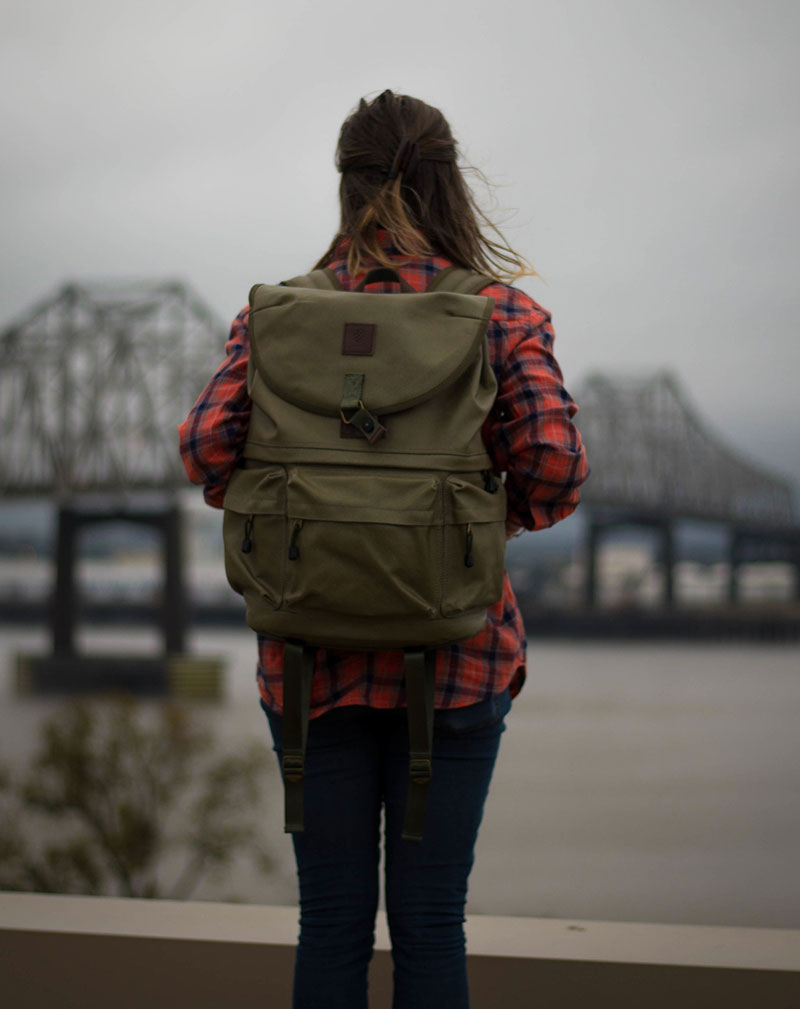
Travel Safety Series
How to safeguard your valuables at the pool or beach
Prevention can reduce your vulnerabilities.
You are starting your vacation and it’s your first day sitting poolside or at the beach. A well-earned vacation, time for you to relax and enjoy your time, fun in the sun. This can all change with an unfortunate typical beach and poolside crime. Criminals spend their day roaming vacation spots, having fun in the sun too. However, they are on the hunt for easy pick-ups and easy money. The criminal sees the iPhone on the beach towel and they wait for you to take a swim. They drop a towel next to yours for a few minutes and away they walk with your phone, wallet and whatever else they can take.

International Travel Trends
Scams and Crimes
It is easy to become a victim if you don’t know what scams to avoid.
Some people work in professions devoted to helping people, while some work with the sole purpose of taking advantage of others. It may be hard to believe someone would devote time and resources to con and rob tourists, however due to the influx of global tourism, it is becoming more and more common for criminals to exploit unprepared travelers. These criminals are professionals, working full time in the booming travel scam industry. Although there are countless travel scams, I will focus on the top five.

International Travel Spotlight
Travel Alerts, Warnings and Geographical Travel Restriction
When planning a trip abroad, the savvy traveler adds an extra layer of security protection by researching their destination and by checking travel.state.gov for information critical to understanding the potential threats of the country they will be visiting. In our spotlight, we will examine the differences between travel destination Alerts, Warnings, Restrictions or a Worldwide Caution. This information may prove valuable to your safety and level of enjoyment during your travel as we will be able to distinguish areas where we may be visiting that are experiencing spikes in crime, acts of terrorism, virus outbreaks, government instability or environmental safety hazards.
I am often asked “What is the difference between Alerts and Warnings” and we will review these differences based on the State Department’s guidance.
Read the full post here.
Travel Checklist
The Five C’s for Safer Travel
Research your destination by starting with the five C’s: country, city, culture, climate, and crime.
Whether relocating or jet-setting the globe, expats and tourists should focus on risk mitigation to avoid disasters and manage emergencies. Most crises can be avoided, but some incidents are simply a matter of being in the wrong place at the wrong time.
In the past year alone, we have seen many extreme examples of this which include floods, earthquakes and terrorist attacks. Also, there are the everyday issues to be aware of including, illnesses, accidents and stolen property, all of which can be more stressful in a foreign country. Therefore, it is important to be cognizant of the entire spectrum of risks. Travelers should learn risk mitigation techniques so they can avoid, manage, and respond accordingly.
When researching your destination, it is helpful to identify obstacles before you go. With this in mind we look at the five C’s to make your experience both safe and extraordinary. Preparation can make all the difference, while unorganized and poorly planned travel can lead to disaster.
Read the full post here.
Travel Checklist
Before you leave and during your travel
Checklist before you leave:
- Research your destination
- Register your trip
- Check passport and visa requirements
- Verify your health insurance coverage
- Confirm communication plans
Check list while traveling:
- Always carry emergency numbers
- If you change your itinerary let family or friends know
- Keep up on local issues
- Blend in with the local population
- Have a backup plan
While traveling abroad, tourists should focus on risk mitigation as it pertains to managing emergencies. Most crises can be avoided, but some incidents are simply a matter of being in the wrong place at the wrong time. In the past year alone, we have had many extreme examples of this which include floods, earthquakes and terrorist attacks. Also, there are the everyday issues to be aware of including, illnesses, accidents, stolen property, assaults and robberies, all of which can be more stressful in a foreign country. Therefore, it is important to be cognizant of the entire spectrum of risks. Travelers should learn risk mitigation techniques, so they can avoid, manage, and respond accordingly. When researching your destination, it is helpful to identify obstacles before you go. For example, how available is medical help, what are the environmental hazards in the area, is there civil unrest and what is the level of gender violence? Your safety comes down to knowing your destination, its culture and finding the safest way of exploring.
Read the full post here.
Travel Safety Series
Understand Your Risks and Make Your Choice for Mitigation with Global Secure Resources
There is risk with any travel. Contact Global Secure Resources Inc. and speak with our security analysts for a free consultation on the best way to mitigate this risk.
I have traveled all over the world and lived in Asia, Europe and North America. When navigating the globe, it is essential to protect both your data security and personal safety. Crossing datelines and integrating into a different environment may lead to fatigue, culture shock and a greater risk to becoming a victim of crime. Safety and security must be a priority when it involves travel and it makes no difference if the destination is around the corner or around the world. Crime, civil unrest, natural disasters and cybercrime all pose a real threat, but rest assured there are strategies to mitigate this risk. The start of any journey begins with a plan and at Global Secure Resources Inc. we are here to enhance your global experience with our personal risk assessment.
Before your loved one studies abroad, takes that cruise, plans that vacation or travels the globe, have them speak with our highly experienced security analysts so they have an understanding of all the potential security gaps involving their travel, including gender violence, lodging security and their vulnerability to crime and terrorism.
Read the full post here.College Safety Series
Spotlight on Sexual Assaults

Carrie Knori Pasquarello, Global Secure Resources Inc.
Sexual Assault is a life changing event that with the appropriate risk mitigation can be reduced.
September is National Campus Safety
Awareness Month and schools during this
campaign are mindful in notifying students
of the safety challenges and security threats
existing on campus. In preparing for this
transition back to school, students need to
take these recommendations seriously and
must also find independent strategies for
staying safe, especially when it involves
combating sexual violence. According to the
latest numbers from the National Sexual
Violence Resource Center, 20% of female
students and 7% of male students are
sexually assaulted while in college.
Particularly troublesome is that more than
90% of college sexual assault victims do not
report the assaults.
Our goal is to educate students, families and
communities with the strategies to prevent
victimization. In the unfortunate instance
when an assault does occur, we must also
provide support for the victim and ensure
that the appropriate services are available to
the victim. Together we can make a
difference by talking about sexual assault
and striving to ensure that safety planning
becomes the personal responsibility for all
individuals, both on and off campus.
Travel Safety Series

Cybersecurity and International Travel
Carrie Knori Pasquarello, Global Secure Resources Inc.
Living or traveling internationally can leave gaps in your digital safety. Vulnerabilities can come from free Wi-Fi networks and technologies like Bluetooth. Hackers are waiting for tourist to show up unprotected, whether it is your cell phone, computer or another device with your personal information. Hackers are clever at getting your information and using it to drain bank accounts and other criminal activities. Like all criminals, they are looking for easy targets. Here are a few simple ideas that can move you up the chain from being an easy target, since many criminals would rather move on to an easier prey.
Criminals are getting your information by either stealing your device or by capturing your information digitally through cyber means. Either way you can make it harder for the criminal to access your information by using passwords and making sure your key accounts have two ways of authentication. Use a good anti-virus system and VPN software which encrypts information.
Read the full post here.
Ten safety tips that students studying abroad need to stay safe.
Carrie Knori Pasquarello, Global Secure Resources Inc.
The number of students studying abroad and the real threats that travelers face in a foreign country require a comprehensive risk mitigation plan to ensure a safe and enjoyable experience. Clients often ask for the best preventive strategies, especially for woman and travelers that fall into the high risk category for victimization. Since our goal is to prevent victimization, these ten tips will add to your safety and could in some cases, save your life and should be shared with your loved ones.
- Keep a panic alert button handy when traveling. The simple act of just pushing a button and activating an alarm may be enough to scare away criminals or at least bring attention to their actions.
- Always have phone numbers and your accommodation details written on paper and put it in your pocket. This way you'll be able to make your way back safety to your lodging if you get separated from your friends or have your bag/purse stolen. Many clients record their important information in their phone or laptop, which if stolen, the information may be difficult to locate and or replace.
- Be careful with the information you share on social media. Specifically, do not publicly post check-ins to your travel spots or selfies – Statistics indicate that house breaks increase when criminals know that your home will be empty. Criminals also have the advantage of knowing what you look like and where you are traveling, which provides them with information they can exploit resulting in potential victimization.

Spotlight on Women
Carrie Knori Pasquarello, Global Secure Resources Inc.
Jennifer Surface, Founder and Principal, Vantage Intelligence
American women are increasingly traveling all corners of the globe. Their destinations range from the unusual and exotic to more common destinations for American travelers, such as Europe. Europe is often painted as an ideal international travel destination—due to the fact that relatively few communication barriers exist, cultural differences are manageable, and European countries generally espouse similar societal principles and values as the US (i.e. freedom, democracy, tolerance, etc).
Furthermore, most prime European travel destinations enjoy generally positive reputations in terms of safety, security, and openness—including for female visitors and residents.
Despite these popular conceptions and narratives, violence against women in Europe—like so many other places in the world—is a keen reality.
Read the full post here.
